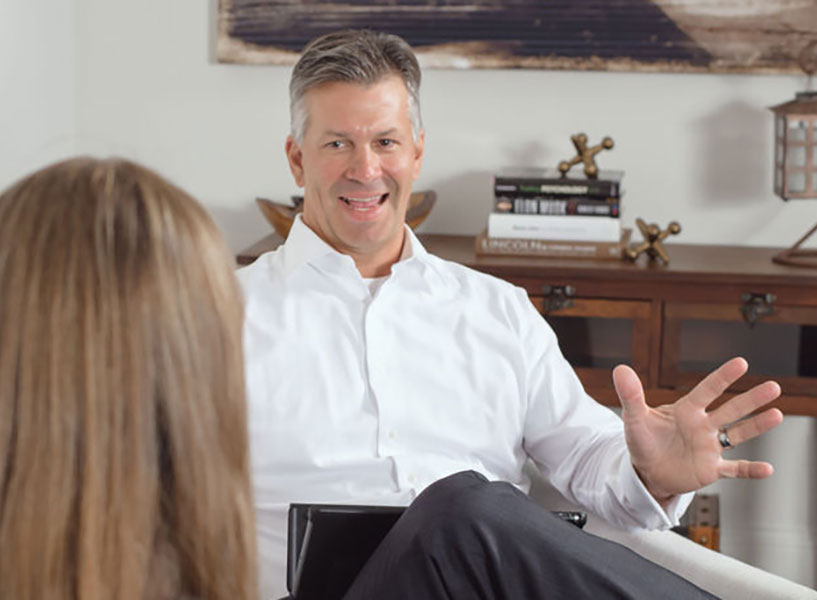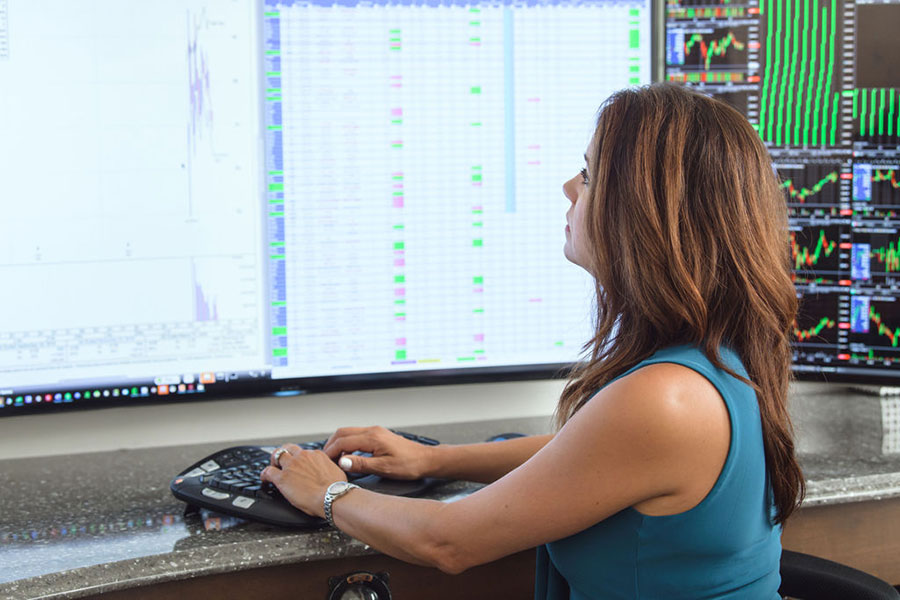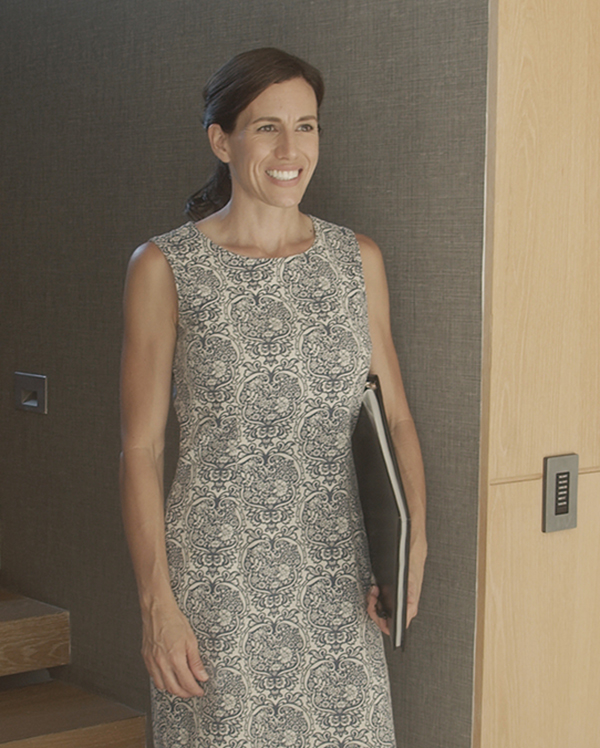Meet our professionals
Portfolio Manager Joel Klein reflects on his journey to creating Exponential Pattern Recognition technology

I had my sights set on becoming an entrepreneur of some kind. So, during college and in the years after I graduated, I embarked on a number of businesses—building customized computers, reconditioning classic motorcycles, operating a boutique excavation service, etc. And while I was pursuing all this, I started investing in the stock market.
One investor’s method stood out in particular because it seemed to be based on solid research and was backed by high performance. His name was William O’Neil. O’Neil’s approach was focused on buying leading stocks early, as they began significant uptrends. I began attending a training course he was running and was fortunate enough to strike up a personal relationship with him.
Joel is a successful entrepreneur with more than two decades of experience in finance and technology
He has managed money professionally since 1999
His cumulative career equity return is over 11,000%
Joel authored the Klein Market Summary from 2007 to 2013 and The FIZYX Forecast, a weekly synopsis of the trend of the stock market, from 2019 to 2020
Education: Bachelor’s degree in Philosophy from the University of Illinois and Master’s degree in Business Administration from the University of Phoenix

I obviously became quite inspired because I closed my businesses after a while and began investing full-time. By 2003, I took the leap and started Klein Asset Management and launched my first fund in which I was investing on behalf of family and friends.
I had a need to keep tweaking the strategy, so I literally invested thousands of hours refining what I had learned from William O’Neil.
My independent research was worth all the effort. The strategy generated annualized net returns of 32% from May 2003 until February 2014. We had a good run.
I put together a new firm, Klein Securities Group, in line with the new requirements of the Dodd Frank Act. For several years leading up to February 2014, our firm was testing various option trading strategies. We had a test account that was research based, and had proven to achieve excellent performance. We optimized that strategy and incorporated it into Klein Securities Group. Ultimately, the stock component of the strategy did very well. But the options component proved extremely volatile.
I thought I should take some time off to figure out what went wrong with my options strategy. So, I took a sabbatical. But instead of focusing on the options, I started to realize that what I really needed to do was take an objective look at my approach to stocks.
I began to see that the equity strategy had two significant shortcomings: It was missing some of the big leading stocks and getting some improper signals on market trends.
I rigorously compared the historical data for the market-leading stocks the strategy was successfully identifying with the data for those it was missing. From this, I was able to home in on the root of the problem—the algorithms’ reliance on current earnings as a key criterium. This measure was a legacy of the discipline from which I developed XPR.
Once I replaced it with a more fundamental and forward-looking measure—revenue growth—our rate of capturing leading stocks improved dramatically.
Keeping ahead of market trends is a key component of our approach to investing. But again, the methodology I had adopted to create XPR was proving to be insufficiently reliable in detecting direction changes. So, I delved back into my proprietary 120-year market database and, from this historical record I created a new, more comprehensive market-timing algorithm for XPR.
I also built the Leading Stock Index (LSI) to get a clearer indication of market supply-and-demand dynamics among the nation’s smartest investors—the market segment that matters most. Problem solved: with our enhanced market-timing algorithm and our LSI input, the accuracy of our market-trend signals rose to 90%.
With all this improvement in our equity discipline, I decided to jettison the options strategies going forward.
Joel is a successful entrepreneur with more than two decades of experience in finance and technology
He has managed money professionally since 1999
His cumulative career equity return is over 11,000%
Joel authored the Klein Market Summary from 2007 to 2013 and The FIZYX Forecast, a weekly synopsis of the trend of the stock market, from 2019 to 2020
Education: Bachelor’s degree in Philosophy from the University of Illinois and Master’s degree in Business Administration from the University of Phoenix
Kayla Klein | Co-Founder & Chief Growth Officer

Kayla brings diversity to FIZYX though her unique background and perspectives
She has collaborated on growth stock strategies for more than 15 years, and has developed expertise in the psychology underpinning sound portfolio management practices
Kayla also has extensive prior experience in founding, organizing, leading, and developing business and operational policies and procedures for not-for-profit ventures
Education: Bachelor of Science degree from Northern Illinois University
One of my key responsibilities is serving on the Executive Committee and taking the lead in guiding the overall strategic direction of the firm. Of course, this requires seeing beyond the tangible here-and-now and drawing on plenty of past experience and imagination. Not always easy, but very fulfilling when important growth initiatives come to fruition.
Keeping our business development moving in the right direction remains one of my main roles. In this capacity, I get to interact with many of our current clients…which gives me an opportunity to see directly how our work impacts people’s lives for the better. It also gives me plenty of ideas on how we can appeal to new investors who don’t have a relationship with us yet.
Before we formed FIZYX, I had already been collaborating on developing new equity strategies and I still stay involved in our core investing activities. It’s exciting.”

Kayla brings diversity to FIZYX though her unique background and perspectives
She has collaborated on growth stock strategies for more than 15 years, and has developed expertise in the psychology underpinning sound portfolio management practices
Kayla also has extensive prior experience in founding, organizing, leading, and developing business and operational policies and procedures for not-for-profit ventures
Education: Bachelor of Science degree from Northern Illinois University
Nicole Mott | Chief Operations Officer
As such, I tend to focus much of my attention on the firm’s day-to-day activities. But “day to day” also means keeping my eye on the big picture and the long term. So, I’m constantly doing whatever I can to integrate sound work optimization principles into our operations.
I also head up our firm’s compliance effort. Talk about details! But all of us at FIZYX understand the seriousness of the ethical and regulatory responsibilities we have as fiduciaries to our investors, and we work together to make sure our compliance is tightly buttoned down.

People are what make our firm tick. So, I’m glad that my responsibilities include human resources. And as our firm grows, the HR function—including training and professional development—is becoming ever more interesting and diverse.”

Nicole brings to FIZYX skill sets in operations, sales, project management, work optimization, strategic planning and execution, as well as coaching and professional development
She was most recently the Global Director of Intuitive Surgical’s Business School, where she was awarded the Commercial Learning MVP and membership in the President’s Club, and received the Making a Difference award
Certifications: Leadership, lean six sigma, project management, training, and coaching
Education: Bachelor’s degree from University of Florida and an MBA from University of Phoenix
Email: in**@fi***.com